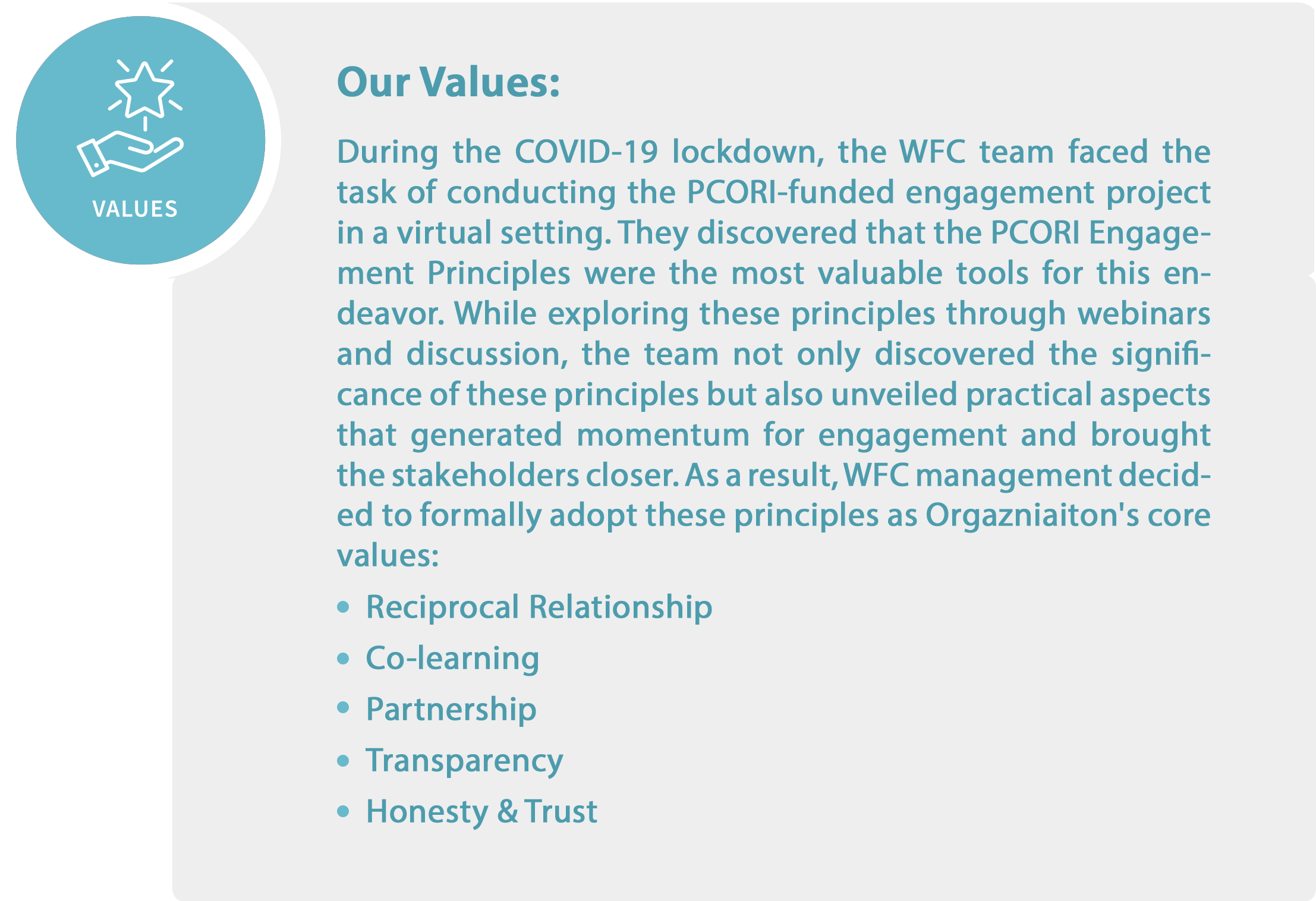In the country of immigrants, we realized that tackling health disparities together is the only way to being worry-free, where all individuals have access to equitable healthcare. Therefore, we focus on social determinants of health markers to understand health inequities and design programs and interventions that can assist individuals and their family members in building competency at the individual level, foster partnerships at the organizational level, and align private and public resources to facilitate the patient-centered outcomes to achieve health equity.



At the core of our mission lie four foundational concepts that provide the momentum needed to live a life simply for the love of wisdom. These principles provide our strategy’s WHY, WHAT, and HOW models and outcomes. We want to share these fundamentals of our work so it’s easier for all of us to be part of the worry-free community. After all, a community can only exist if it is ‘inclusive’ of everyone. Welcome abroad!
None of us are born by our choice, neither we have the luxury to pick the place of our birth, the people to who we are born, and the communities we are born in. This inherent dependence on the ‘natural laws’ brings to each of us a unique set of variables that ordain our equation of life.
It also highlights how our control is limited to what we choose to do once we have become human. To make sense of our time and space, we must understand our environment and the people we live with. This ecosystem of interdependent outcomes calls on our responsibility to balance our equation of life. Hence, recognizing this responsibility as we use our inherent capacities and contribute to the equation of our time and space becomes the essential purpose of our lives. Based on this premise, fulfilling our purpose in life becomes our #1 responsibility leading the founding members to establish WFC with a mission to fulfill the community’s needs.
As a faith-based institution, we believe that our provisions are part of our inherent equation, and no matter what we do, our provisions (rizq, رزق) have already been destined. Our choice is how we fulfill our responsibility to balance our equation. Our deeds and actions are choices we can make to balance our equation. We must exercise tawakal, to understand objectively the reason for our becoming objective-
ly. It is this tawakal that becomes the basis of trust in the Almighty. Resistance to tawakal gets us into trou-
ble as we resist the natural progression of our lives and stand in the way of our successes. Indeed, resis-
tance is futile!
Once the Why is answered, the question arises WHAT actions are required from us to fulfill our responsibili- ty towards our community? Once again, we bank on natural laws to guide us with the garb of faith, lead- ing us to Principle #2.
Once tawakal is in place, one’s purpose emerges on its own, and the path becomes very clear of WHAT needs to be done.
Achieving the WHAT happens when we define the HOW. This principle illustrates that Once tawakal is in place, one’s purpose emerges on its own, and the path becomes very clear of WHAT needs to be five com- ponents of this principle.
This principle guides us in clearly stating our Define the boundaries of our work.
WFC calls itself a faith-based community health organization. Community healthcare is a business of trust. Trust is an internal force that gets extended from one person to another or from one system to another and hence by default, must originate from somewhere. It is simply a logical necessity. Trust is integral to community health, a force without which community health cannot produce positive outcomes.
Patient-Centered Outcomes Research is a growing field that aims to provide better healthcare by evaluating questions and outcomes that are important and meaningful to patients and their caregivers. This emerging approach has been transformed into a methodology by The Patient-Centered Outcomes Research Institute (PCORI), established as part of the US Patient Protection and Affordable Care Act of 2010 to fund Patient-Centered Outcomes Research and Comparative Clinical Effectiveness Research. This research methodology seeks to extend the concept of patient-centeredness from healthcare delivery to healthcare research.
Though the Patient-Centered Outcomes Research/Comparative Effectiveness Research methodology is still in its capacity-building phase, where more and more clinical and social researchers are adopting the concepts and integrating the techniques in their empirical works, they continue to bank on the Community-Based Participatory Research approach to understand and design clinical and behavioral interventions.
As opposed to PCOR methodology, Community-Based Participatory Research (CBPR) provides a framework for a collaborative approach where researchers, community members, and stakeholders co-create and conduct research to address local concerns. While the CBPR approach ensures research is relevant, respectful of community values, and leads to practical solutions, it lacks engagement methods that complement the scientific research for clinical and social scientists.
Nonetheless, CBPR paved the platform for community engagement research and has been helping clinical scientists to translate their research and engage community members for over five decades. The CBPR platform’s evolution to PCOR demonstrates a progression towards more patient-oriented research methodologies. While CBPR emphasizes community engagement, PCOR adds a structured framework to gather and compare evidence-based patient insights. This shift enhances the credibility of patient-inclusive research, aiding healthcare choices with robust evidence while maintaining a community-driven spirit.